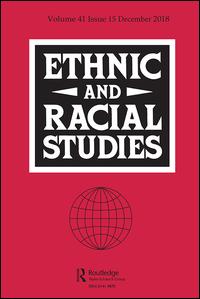(Mediterranean Politics) Abstract: Bulgaria, Greece, and North Macedonia have demographically the largest and politically the most significant Turkish minorities in southeastern Europe. Yet the official recognition of Turkish ethnicity and language varies very significantly across these three neighbouring countries. This variation is particularly puzzling and counterintuitive if one considers a number of alternative explanations, all of which would predict different outcomes. The country with the highest level political recognition for Turkish language and ethnicity (North Macedonia) is not the one with the largest Turkish minority in absolute or relative terms, or the one with the highest Turkish minority representation in parliament, or the one that is a new or old EU member, or the ones that neighbour Turkey, the kin state of the minority. Through process tracing based on primary and secondary sources, we argue that a particular type of political polarization over identity among the ethnic majority, which we conceptualize as the ‘nationhood cleavage,’ facilitated the highest level of official recognition of the minority.
Read More © Mediterranean Politics
Co-author: Idlir Lika











